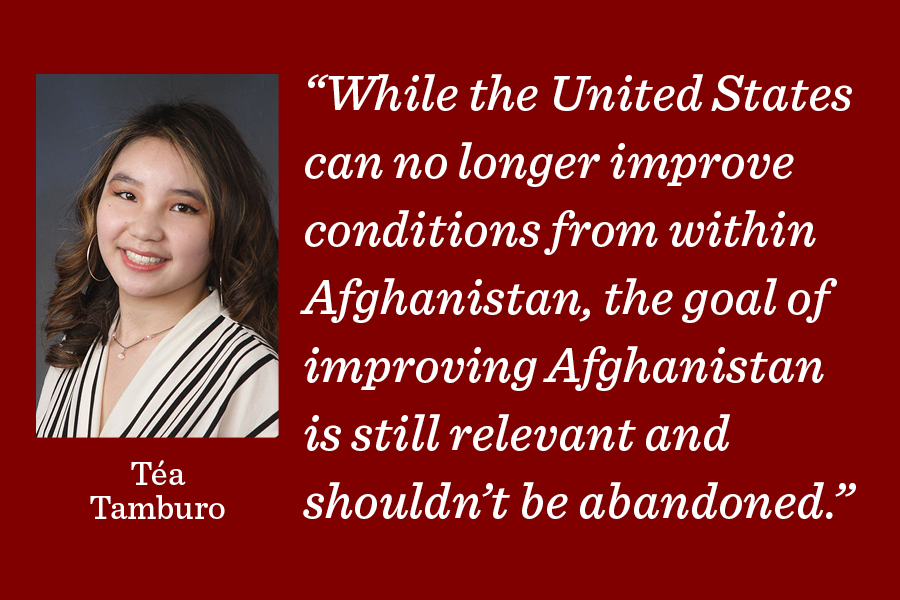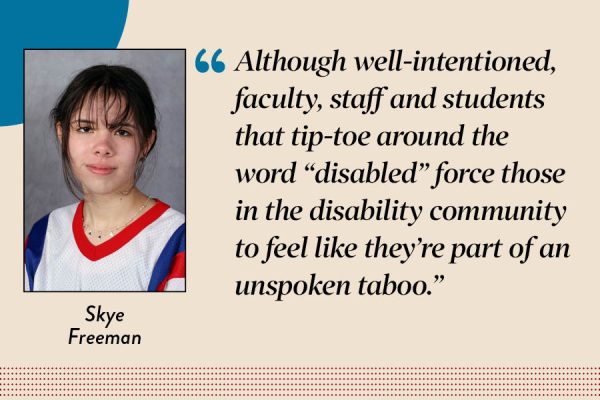U.S. must still aid Afghanistan after withdrawal
Midway Staff
The military exit from Afghanistan was a good choice, but it shouldn’t dull us to the continuing need for humanitarian aid in the region, writes Deputy Managing Editor Téa Tamburo.
October 6, 2021
On the morning of Sept. 11, 2001, 19 members of al-Qaeda, a group in Taliban-controlled Afghanistan, hijacked four commercial airplanes. Two of the planes were flown into the World Trade Center and resulted in the complete destruction of both towers and the loss of 2,977 lives.
Then-president George W. Bush launched Operation Enduring Freedom, and United States forces and our allies overthrew the Taliban, which had been in power since 1996. This started the War on Terrorism, the longest war the United Sates has been a part of.
Now, 20 years later, the United States has rightfully withdrawn from Afghanistan after years of establishing positive policy and diplomatic relations. Even though remaining on their grounds would be futile, we can still play a crucial role in aiding Afghanistan and its citizens from afar.
The United States led the movement on counterterrorism, with the goal of securing human rights, international law and overall governance. Under United States protection, the quality of life there improved. Women, in particular, benefited, for they were permitted to receive an education. From 1996 to 2001, the Taliban prohibited women and girls from attending school. Only after the United States’ invasion did career and education opportunities open to them, creating a generation of educated women.
Even though remaining on their grounds would be futile, we can still play a crucial role in aiding Afghanistan and its citizens from afar.
— Téa Tamburo
In August, after months of conquering cities throughout Afghanistan, the Taliban entered Kabul, and Afghanistan fell to their rule.
The United States is no longer capable of altering Afghanistan’s military or political dynamics, and the war has reached stalemate. Perpetuating the U.S. military presence would not reverse these dynamics. The United States spent $2.3 trillion on the war, and future finances and human capital would be more productively spent elsewhere. While the United States can no longer improve conditions from within Afghanistan, the goal of improving Afghanistan is still relevant and shouldn’t be abandoned.
Now under Taliban rule, women’s education is uncertain. In the United States’ rapid departure from Afghanistan, U.S. citizens, green card holders and Afghanistan residents were left there and are in need of humanitarian assistance. While this was not the desired outcome of the War on Terriorism, we shouldn’t give up on Afghanistan and its citizens either. Through means such as providing asylum and supporting nongovernmental organizations, we still have the ability and resources to help improve Afghanistan’s societal wellbeing, something that should remain a priority.


















